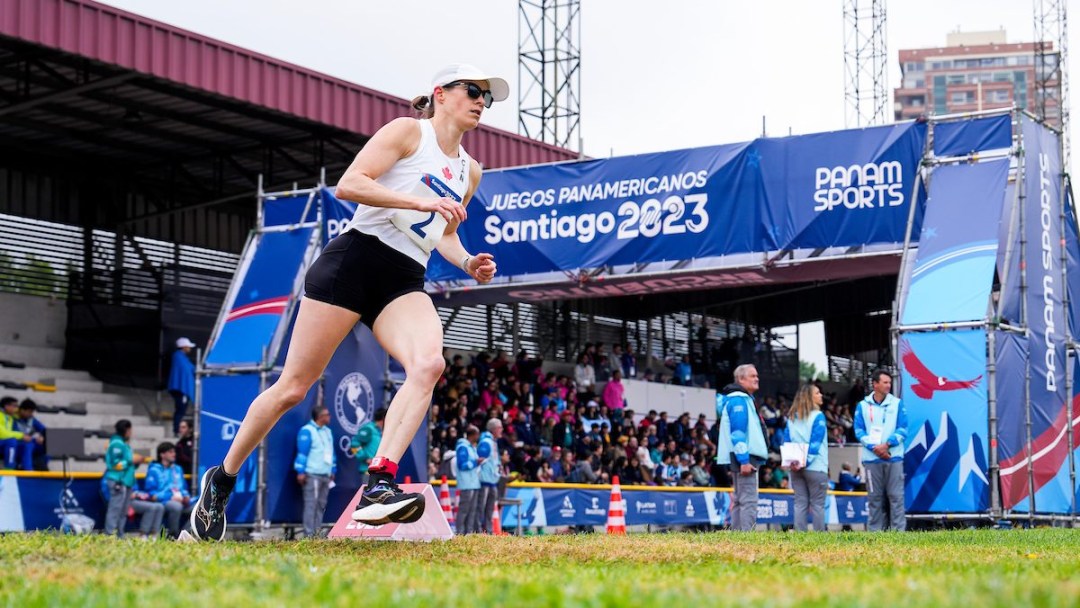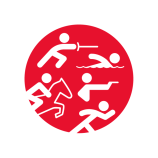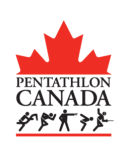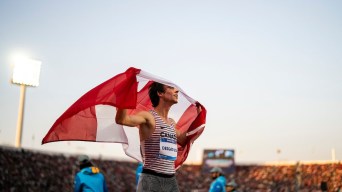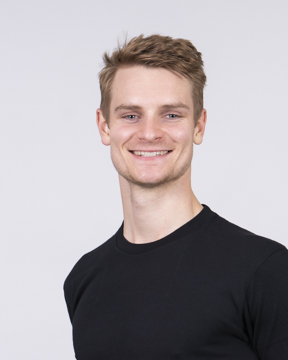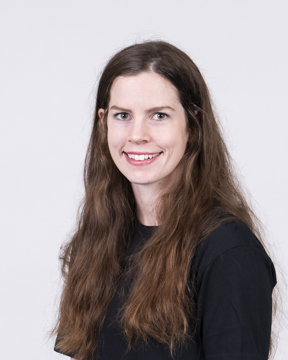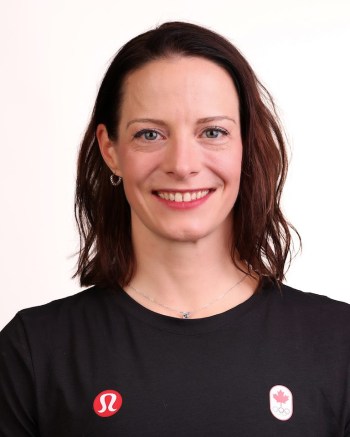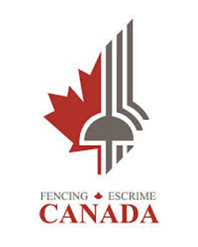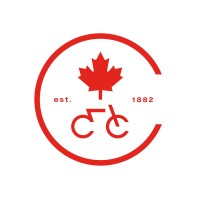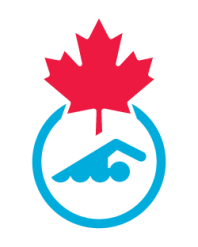Modern Pentathlon
Sport Overview
Modern Pentathlon at Paris 2024
Venues: North Paris Arena (fencing ranking round), Château de Versailles (riding, fencing bonus round, swimming, laser run)
Competition Dates: August 8-11 (Days 13-16)
Events: 2 (1 men, 1 women)
Trivia: Test your knowledge!
Introduced at the 1912 Olympic Games in Stockholm, modern pentathlon consists of five sports (fencing, riding, swimming, shooting, running). Competitors accumulate points for their results as they move from sport to sport with only a short break in between.
The Olympic program now includes men’s and women’s individual events, with the latter held for the first time at Sydney 2000. At Paris 2024, each event will have its 36 athletes compete in semifinals on one day, with the top 18 advancing to the finals on another day.
The competition format is as follows:
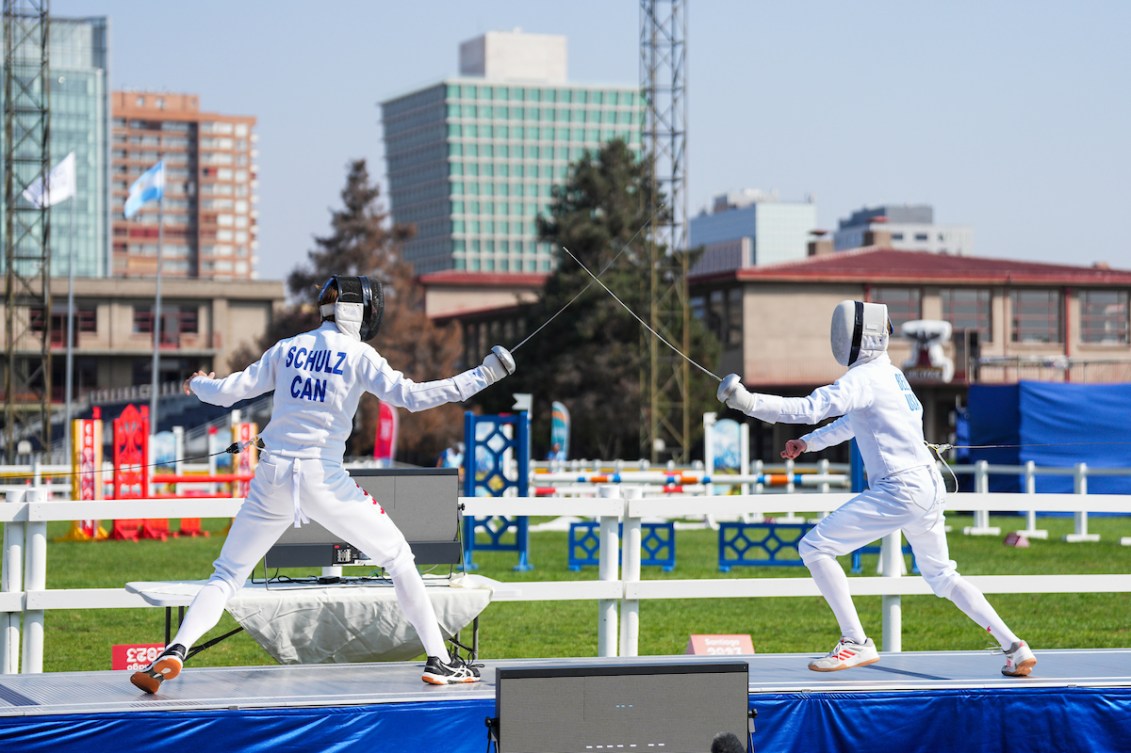
1) Fencing
There are two parts to the fencing competition: the ranking round, which takes place before the rest of the competition, and the bonus round, which is contested during both the semifinals and finals.
In the ranking round, each competitor faces every other competitor in one-minute épée bouts. The first to score a single hit wins the bout. A competitor who wins 70 per cent of their bouts earns 250 pentathlon points, with every victory over or under that mark worth a specific point value in relation to the total number of competitors. As an example, in a field of 36 athletes, a competitor would need 25 victories to earn the full 250 points while every victory over or under that mark adds or deducts five points.
During the semifinals and finals, the bonus round is the second sport contested, following the riding. Each épée bout is for one hit in 30 seconds. The first bout pits the last-ranked athlete against the athlete ranked next-to-last, with the winner moving on to face the next ranked athlete. Athletes continue to advance as long they win bouts and until everyone has fenced. Each bout won equals two pentathlon points. The top pentathlete from the ranking round receives four points if they win their only bout in the bonus round.
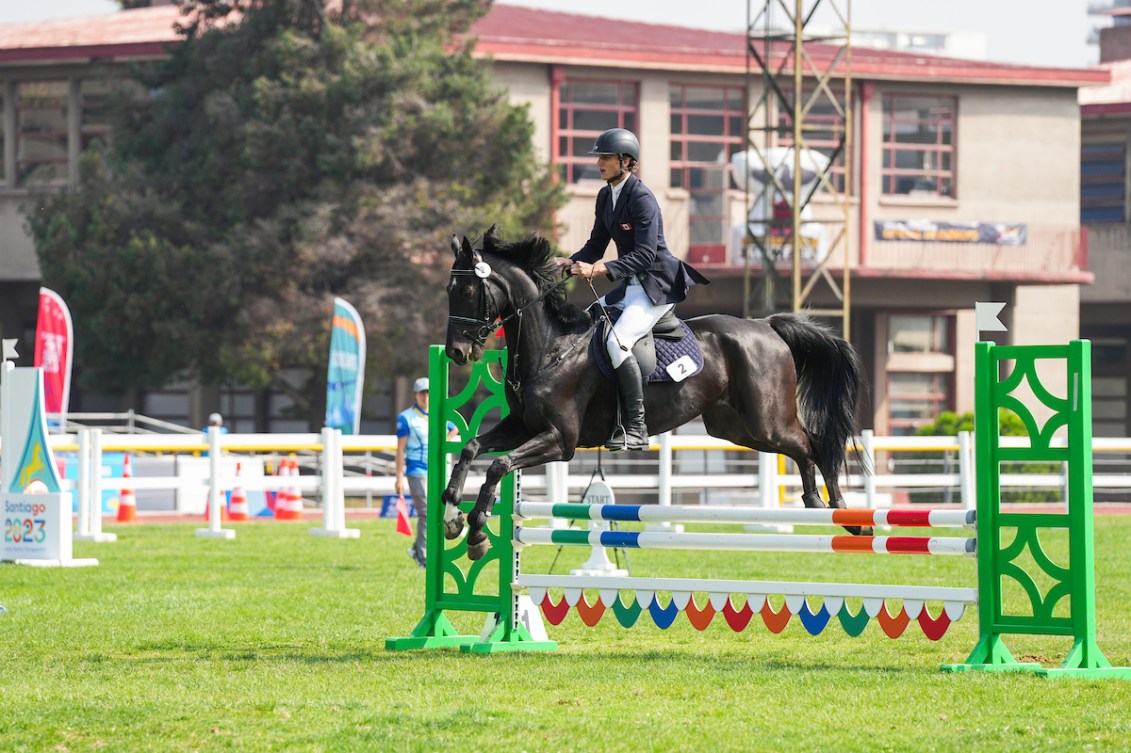
2) Riding
In the show jumping competition, riders and horses have to clear a series of 10 obstacles (including two double jumps) on a course that is 350-400 metres long. Unique to modern pentathlon, the horses are provided by the organizers and assigned to the athletes by random draw. A clear round in the allotted time limit earns 300 pentathlon points. Each second over the time limit is a deduction of one point. Points are also deducted for on-course penalties.
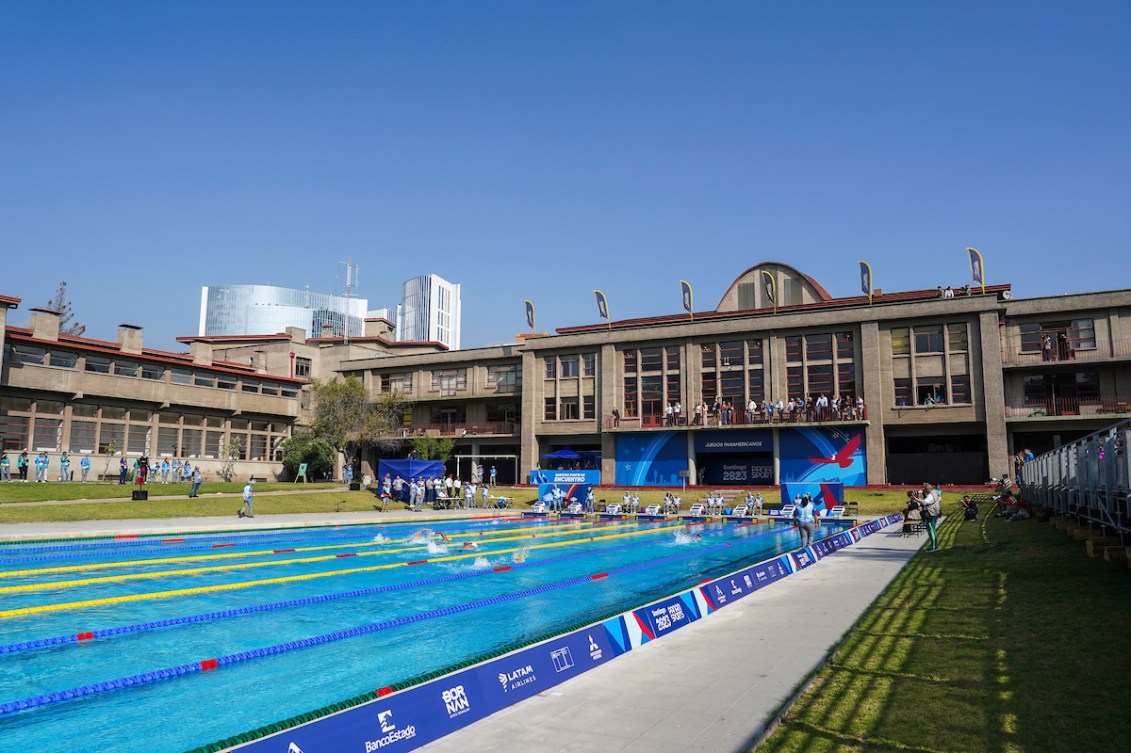
3) Swimming
In the 200m freestyle event, a time of two minutes 30 seconds earns 250 pentathlon points. Every half second over or under this time deducts or adds one point. As an example, a time of 2:32.50 is 245 pentathlon points.
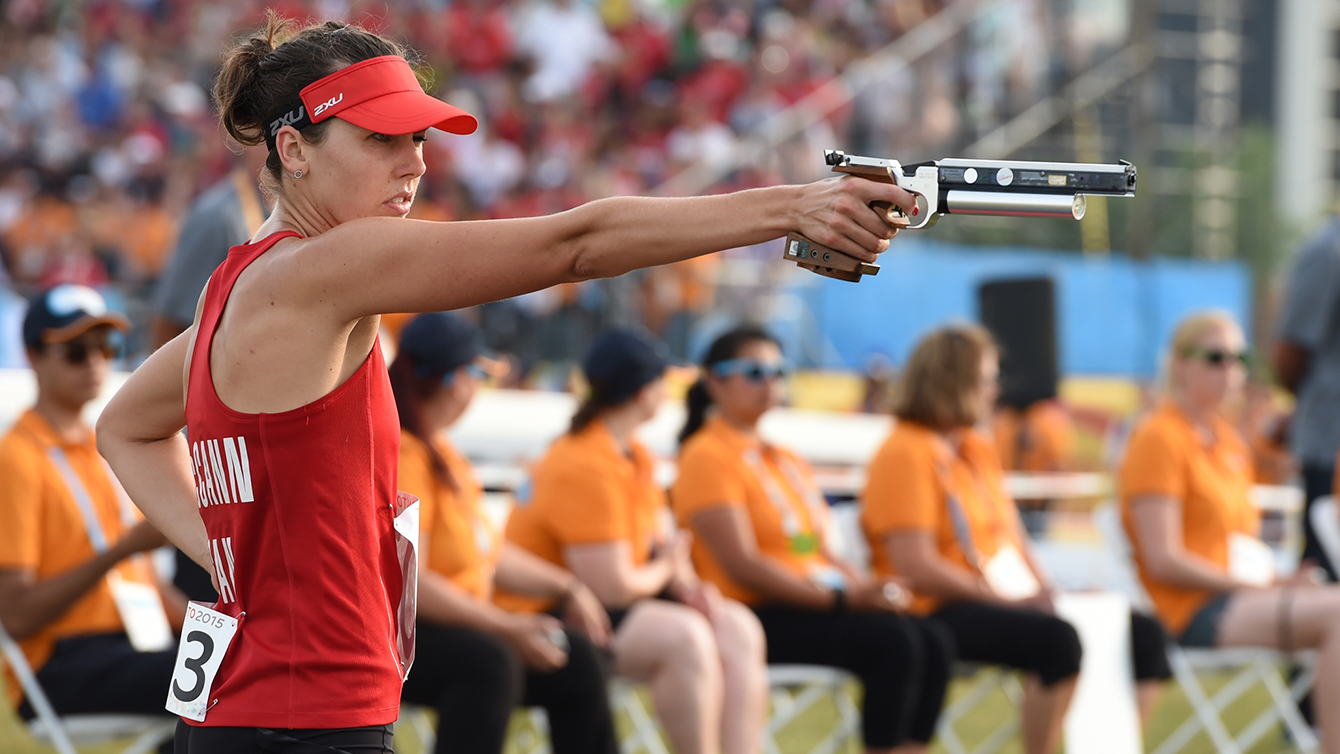
4) Laser Run (combined running and shooting)
Since 2008, the shooting and running disciplines have been combined into one event, with laser pistols used for the shooting. Athletes begin with a staggered start – based on the points standing after the first three events – with the leading athlete the first to go. The rest of the field follows with a one second handicap for every one pentathlon point.
The athletes run a total of 3000m on a cross-country course, divided into five legs of 600m, which are interspersed by four sets of shooting. At the shooting range, athletes are required to hit five targets from a distance of 10m with an unlimited number of shots in less than 50 seconds. Because of the handicap start, the first athlete to cross the finish line at the end of the combined event is the overall winner of the modern pentathlon.
Canada’s Olympic Modern Pentathlon History (Pre-Paris 2024)
Canada’s best finish in an individual Olympic modern pentathlon event came at London 2012 when Melanie McCann finished 11th in the women’s individual event. Canada’s best finish on the men’s side came at Beijing 2008 when Joshua Riker-Fox placed 24th.
A men’s team event was included from 1952 to 1992. Canada placed 10th at Seoul 1988.
Olympic Modern Pentathlon History
Modern pentathlon was invented by Pierre de Coubertin, the founder of the modern Olympic Games. It was intended to showcase the various skills that a 19th century soldier would need. Until an international federation was founded in 1948, the sport was administered directly by the International Olympic Committee.

